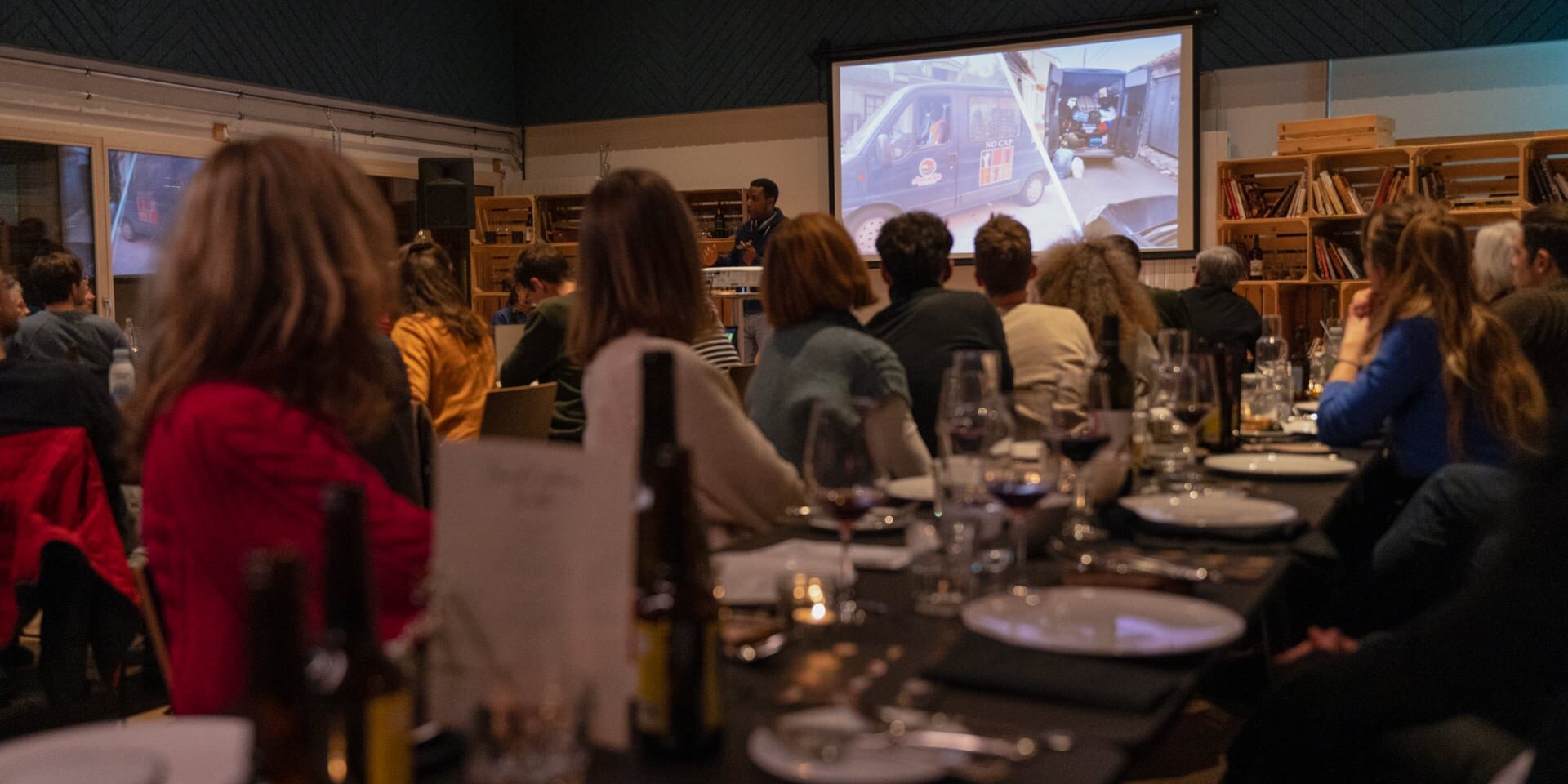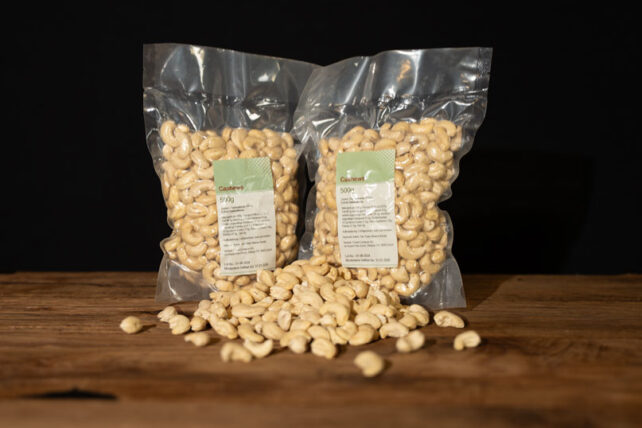"Even before the journey, you understand the hell that awaits you"

In southern Italy, young migrant workers in particular are illegally employed by companies for just a few days, often earning just a few euros a day - without an employment contract, without insurance and without security. The conditions are often similar to slavery. Political activist and former field worker Yvan Sagnet spoke at our Tavolata Speciale in Zurich about his successful fight against this exploitation in agriculture in southern Italy. We were left very moved, thoughtful, but also grateful. Because we all learned a lot.
1200 kilos of tomatoes per day
It is midsummer at 42 degrees in southern Italy. 25 field workers drive over 100 km standing up in a van with 9 seats. Their hands and backs are still aching from hundreds of tomato seedlings the day before. In the middle is young Yvan Sagnet from Cameroon. Like the other workers, he is paid per box of 300 kg of tomatoes. He receives 14 euros per day - gross. After deducting transportation, a sandwich and some water. That leaves 4 euros for 16 hours of work. At our tavolata in Zurich, the former field worker and political activist talks calmly and unsparingly about his terrible fate in the fields in Italy, which he experienced as a young student:
"Even before the journey, you understand the hell that awaits you. Then, when the work begins, there is another, double hell."
Yvan Sagnet, former field worker and activist for better working conditions in Italy
This was not only the case for Yvan Sagnet, but also for hundreds of thousands of other workers in Italy. And it is still happening to them today. Yvan Sagnet is now fighting against this abuse of social exploitation in agriculture with the NoCap association. "Cap", short for caporalato, stands for the illegal form of labor recruitment. Together with his fellow campaigners, Yvan stands up for the rights of workers and does important educational work at both a social and political level. Thanks to the work of NoCap, for example, a law against "caporalato", i.e. the exploitation of workers by middlemen, was passed in Italy. Currently, 1,200 workers benefit from NoCap's work and thus from legal, humane employment conditions. However, this is only the beginning, as around 400,000 migrant workers are affected by exploitative conditions in Italian agriculture.
"Arresting an exploiter often doesn't change much. The most effective weapon is consumer awareness."
Yvan Sagnet, former field worker and activist for better working conditions in Italy
In his stories, Yvan Sagnet repeatedly emphasizes how important his own purchasing behaviour is alongside his work. What kind of food do we want to have on our table at home? Where do the tomatoes and oranges we eat come from? Were the people who harvested them enslaved and exploited? Choosing good food is always a political act that gives farms and workers in the food chain the dignity they deserve.
The central role of gastronomy
Zurich-based professional chef and sustainable restaurateur Andi Handke accompanied the Tavolata with a delicious three-course plant-based menu featuring selected crowd container products. Andi Handke has long been aware of the issue of exploitation in agriculture. That's why he only serves products whose origin and conditions he knows in his business and at events. Andi Handke emphasizes the central role of gastronomy. Chefs have a huge opportunity to force consumers to change their way of thinking. They are the ones in the kitchen who decide what is cooked and served to guests:
"It's better to buy one less TV or cell phone and invest the money in food instead. This has a direct impact on your own health, but also on the planet as a whole."
Andi Handke, professional chef and food activist
Organic does not mean always fair & ethical
One thing probably became clear to all the guests that evening through Yvan's personal and touching stories: when shopping, it is not only important to make sure that the food has been produced organically. We also need to consider the social and ethical conditions under which the products were produced, harvested or delivered - who the people behind them are.
"The fact that the organic label often only covers the ecological perspective, but not the social level, was new to me and I only really became aware of it today."
Olivia, Tavolata participant in Zurich



I also recommend the 2019 film "The New Gospel" by Milo Rau, which shows exploitation in a very impressive way.
It is unbelievable that in 2023 people are still being exploited in the fields of Europe. Your work is so important to open the eyes of consumers. Thank you!!!